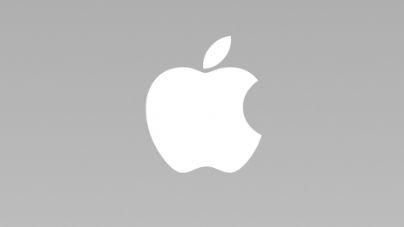I think there’s no doubting this week’s big question: is Apple in trouble? According to Wall Street analysts, the company’s latest results were disappointing because it failed to meet expectations. Whose expectations? The expectations of Wall Street analysts! In the immediate aftermath of the announcement of its third quarter results for the three months to 30 June, Apple’s share price fell from just over $600 to around $570 or so.
What was in those figures to cause such disappointment? Profits were up 20% to $8.8 billion on sales up 22% to $35 billion and gross margin reached 42.8% compared to 41.7% in the same period last year. In terms of product, Apple sold 26 million iPhones, up 28% on the same quarter last year, but three million less than the 29 million Wall Street analysts had been predicting. Apple also sold 17 million iPads, an increase of 84% over the same quarter in 2011 and the most it had ever sold in a quarter.
Sales of Macs-yes, actual computers-also rose but by a rather more sedate 2%, mainly on the back of increased sales of laptops (although the shift to laptops led to a 3% decline in revenues). It’s worth noting that, according to Apple, new users account for one out of every two Macs sold in Apple stores. Then there was the iPod range (remember them?) which, while down 10% on last year’s quarter, beat Wall Street predictions of 6.38 million with 6.8 million units sold. Finally, the "hobby" of Apple TV sold 1.3 million units in the quarter, up 170% on last year, making it 4 million sold so far in fiscal 2012.
Pretty dismal, I’m sure you’d agree. Now, let’s take a look at those Wall Street estimates. Where did they come from? Were they based on Apple’s own guidance? Er, no. Admittedly, Apple has a habit of being cautious in its estimates for quarterly performance. Admittedly, it often surpasses those estimates by quite a distance which may have led Wall Street analysts to err on the side of optimism when they were making their projections for iPhone sales.
But for the record, Apple’s guidance for the third quarter was around $8.68 a share on sales of $34 billion or so. The results it unveiled this week were above that in terms of sales and earnings ($9.32 a share). Wall Street, however, had been predicting earnings of $10.32 a share and sales of $37.2 billion. According to my back of an envelope calculations (OK, so I’m lying, no one uses envelopes anymore, it was actually my desktop calculator) that’s about $9.77 billion in profit, which is quite a long way away from the actual figure of $8.8 billion.
For the next quarter, Apple’s chief financial officer Peter Oppenheimer is predicting sales of $34 billion and earnings per share of $7.76 ($7.32 billion, I think). Now, one of the reasons those iPhone sales may well have come in quite a bit below Wall Street analyst expectations could be people have been holding off for the launch of the iPhone 5 which has been widely touted as arriving in September (the other reason, of course, is that they got their figures wrong). It’s something Oppenheimer alluded to in the conference call after the results when he said: "Our weekly iPhone sales continue to be impacted by rumours and speculation regarding new products." Anyway, if the iPhone 5 does arrive in September as rumoured, you might expect it to have a beneficial effect on iPhone sales for the last two months of the fourth quarter. That could mean that Oppenheimer’s guidance might turn out to be overly cautious, especially if the other much rumoured Apple product (the iPad mini) also emerges in the quarter. Wall Street analysts certainly think so. According to The Wall Street Journal, they are forecasting sales of $38 billion and earnings of $10.23 a share (around $9.67 billion or so if my desktop calculator is to be believed).
We shall have to wait and see how it actually performs but Apple’s position is perhaps best summed up by CCS Insight analyst John Jackson who told Reuters: "Apple is in that rarest of all positions where the Street will punish it for anything less than an excess of success." In other words, Wall Street believes Apple should be too much of a good thing all the time.








Subscribers 0
Fans 0
Followers 0
Followers